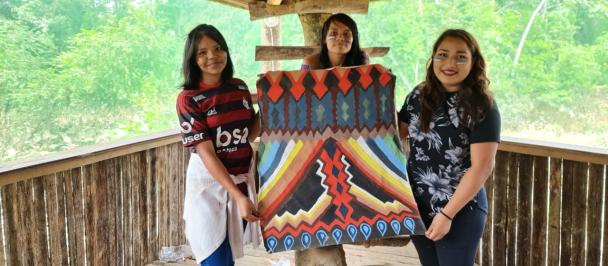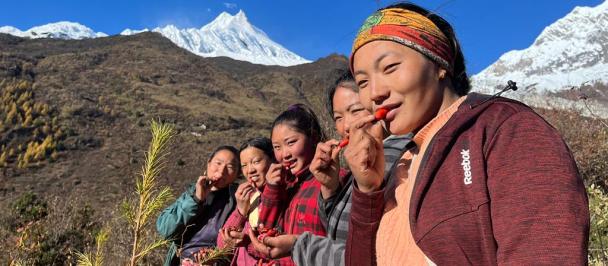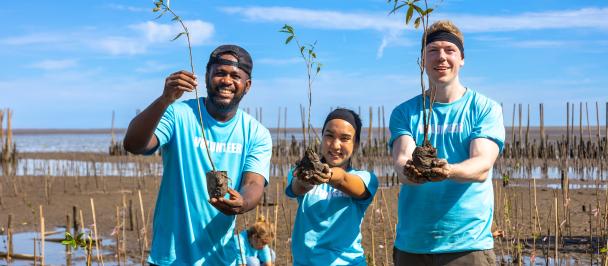To achieve the commitments of the Global Biodiversity Framework, local action must take centre stage
March 14, 2023
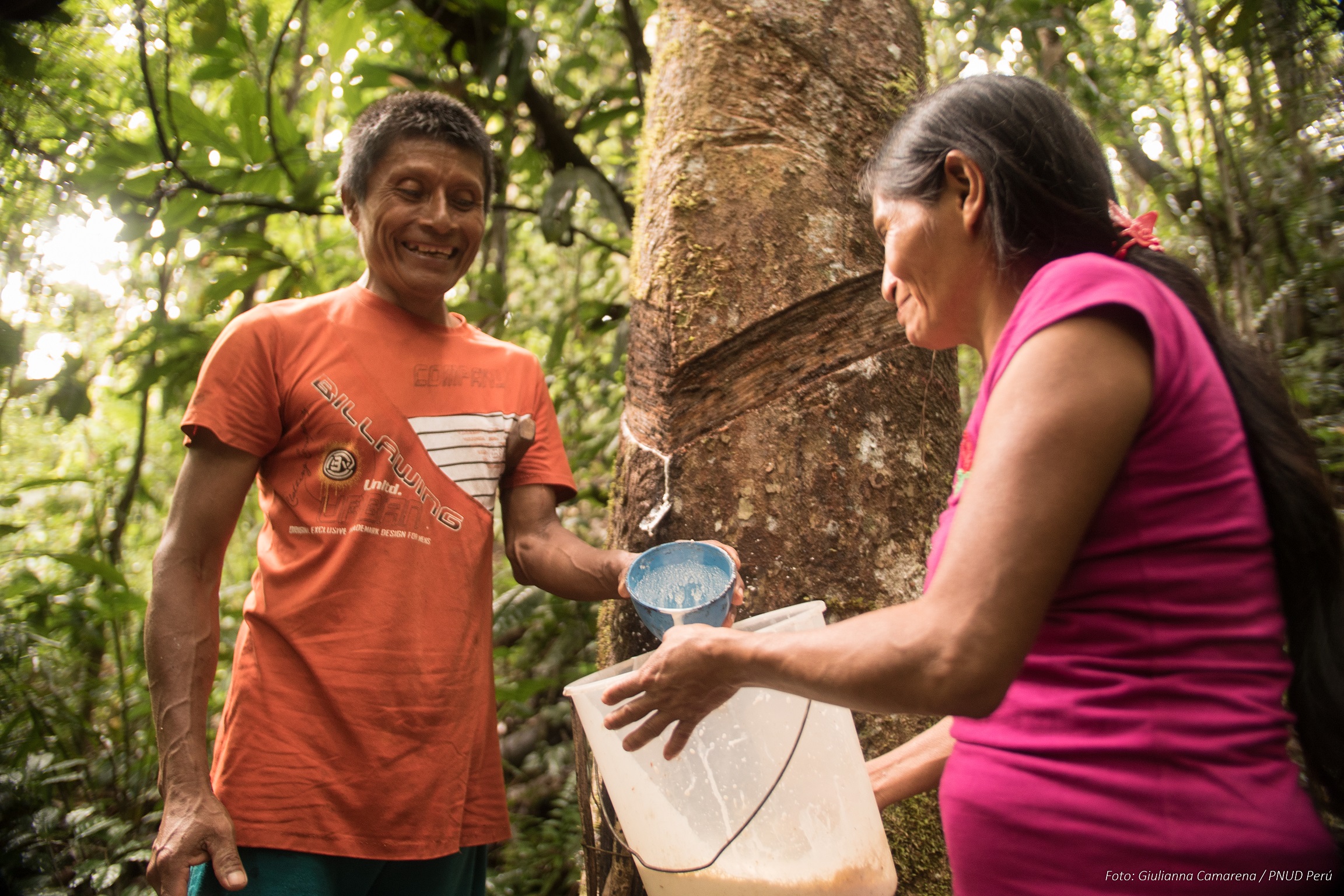
Latex rubber is sustainably harvested from community-managed rubber forests in the ECA Tuntanaín in Peru. This 2019 Equator Prize winner uses traditional knowledge to produce global commodities.
In December last year, after a two-year delay, the world finally came to consensus on a new agreement to stem the loss of biodiversity. This new “Kunming-Montreal Global Biodiversity Framework,” which runs through 2030, is significant for several reasons.
First, its 23 targets are far-reaching, with a level of ambition commensurate with the scale of the biodiversity crisis. Target 2 calls for at least 30 percent of degraded lands and waters to be under some form of active restoration by 2030 – accounting for about a billion hectares of land. The framework also calls for increasing the protection of nature from approximately 17 percent today, to 30 percent of all lands and waters, all within the next eight years.
Second, the framework seeks the kinds of transformational changes required to spark meaningful progress in reversing biodiversity loss. These systemic actions include the creation of integrated land- and sea-use development plans based on top-notch spatial data, the mainstreaming of nature’s values into everything we do, and a dramatic increase in the scope and scale of finance for biodiversity, among other actions.
Third, the framework is ground-breaking in its recognition of the critical role of Indigenous peoples and local communities in achieving these ambitious and transformational targets. Targets of the framework also declare that Indigenous peoples and local communities will be active decision makers in implementing the targets; that Indigenous and traditional territories will be recognized in nature protection goals; and that customary use of natural resources will be protected. Furthermore, the framework reaffirms that it will not diminish any of the “rights Indigenous peoples currently have or may acquire in the future”.
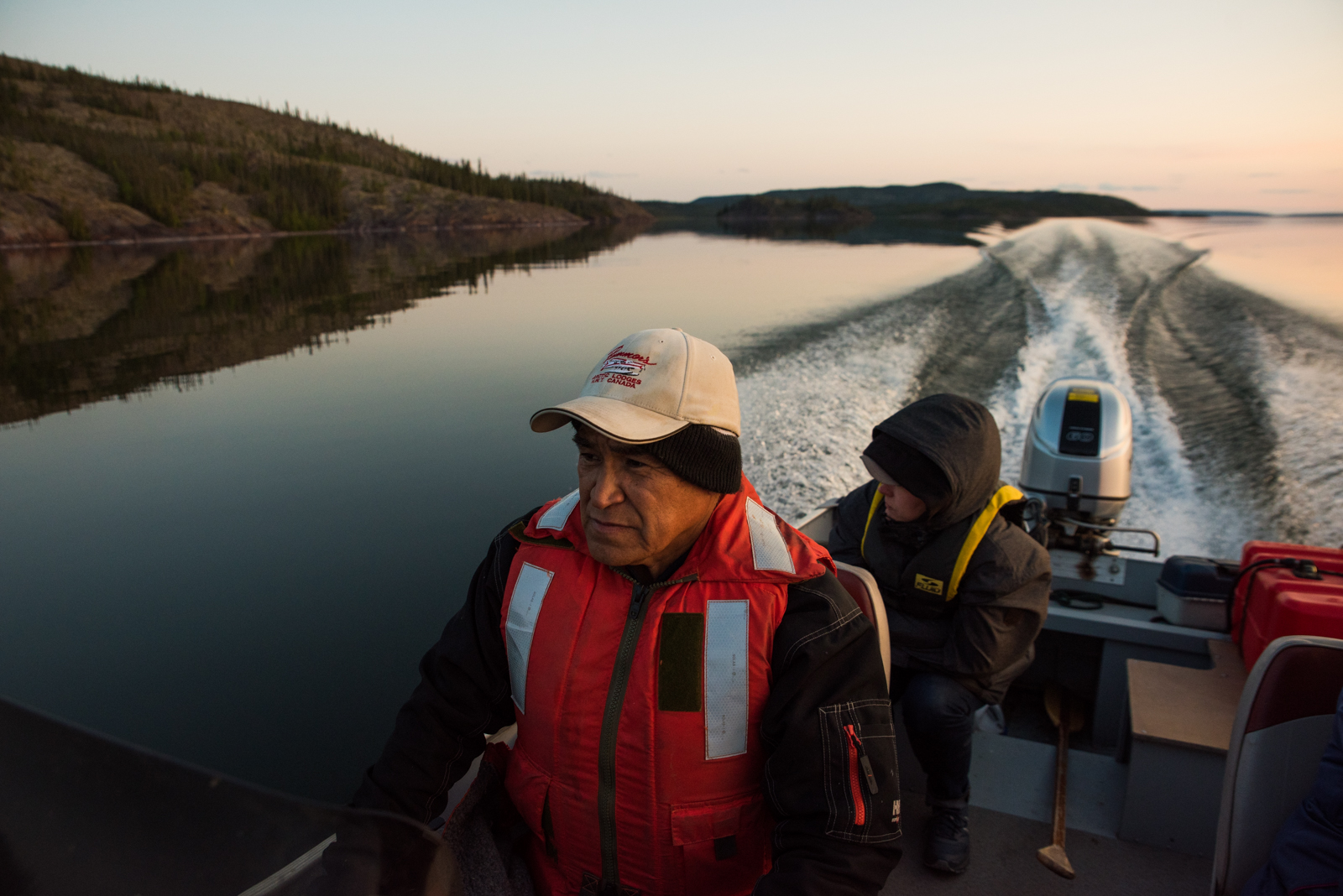
Members of Łutsël K'é Dene First Nation, 2020 Equator Prize winner, conduct a routine biodiversity patrol of their historic Indigenous Conserved Area, Thaidene Nëné.
The need to protect and restore ecosystems, to create on-the-ground transformational change, and to put Indigenous peoples and local communities at the heart of sustainable development is not new to the UNDP-led Equator Initiative. For 21 years, the partnership has celebrated and championed the pivotal role of more than 270 local and Indigenous Equator Prize winning communities. These winners have shown the world how their actions and solutions can lead precisely to the kinds of transformations necessary to achieve the ambitious Kunming-Montreal Global Biodiversity Framework.
For example, last year’s winners demonstrate that the solutions needed to achieve the Global Biodiversity Framework already exist. Associação Rede de Sementes do Xingu has restored 7,400 ha of degraded forests in Brazil by reviving a traditional seed distribution practice. In Gabon, OELO successfully advocated for the first sustainable freshwater fisheries management plan to be signed into national law. Protecting 665 ha of a biodiversity hotspot under the leadership of Indigenous youth, Mauberema Ecotourism, Nature Conservation, Education, Research and Training Center in Papua New Guinea is showing how traditional knowledge is necessary to reverse biodiversity loss.
UNDP has launched a global call for nominations for the Equator Prize 2023 cycle. Nominations are open through 20 March 2023. This year’s prize cycle mirrors the key elements of the Global Biodiversity Framework. Winning initiatives will be honoured under the following themes:
- Creating a planetary safety net: Protecting, restoring and/or sustainably managing ecosystems to help mitigate greenhouse gas emissions, enabling community-based adaptation to the impacts of climate change, and/or species migration
- Redefining our relationship with nature: Placing nature at the heart of local development plans and policies and safeguarding the rights of land and water defenders through advocacy and promotion of social and environmental justice
- Creating a new green economy for the people and planet: Protecting, restoring and/or sustainably managing terrestrial, freshwater and/or marine ecosystems, biodiversity, and wildlife that sustains jobs and livelihoods, including through micro- and small green enterprises, and the promotion of Indigenous economies
Local action by Indigenous peoples and local communities around the world helped prompt world leaders’ ambition in the historic Global Biodiversity Framework. The success of Equator Prize winners demonstrates the potential for local action to be scaled up to benefit entire regions. Historic financial commitments within the framework show that world leaders are ready to invest unprecedented amounts into promising solutions. Now, with all eyes on the implementation of these new biodiversity goals, it’s time to show the world, once again, that local action holds the available solutions we need to scale for a sustainable future.
Nominate for the Equator Prize 2023 today.

 Locations
Locations




